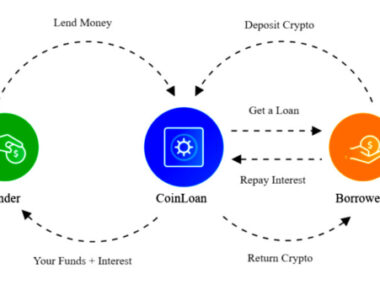Welcome to the exciting world of cryptocurrencies! If you’re based in Nigeria and have been intrigued by the concept of Bitcoin, you’re in the right place. In this beginner’s In this guide, we will lead you through the steps of establishing a Bitcoin wallet allowing you to unlock the potential of this digital currency. Whether you’re considering investing in Bitcoin, using it for online transactions, or simply exploring the possibilities, Possessing a wallet that is secure and dependable is of utmost importance. We understand that getting started can seem overwhelming, with all the technical jargon and security concerns. But fear not! We’ve got you covered. In this guide, we will break down the process into simple steps, explaining everything you need to know in a beginner-friendly way. So, let’s dive in and embark on this exciting journey of creating your very own Bitcoin wallet in Nigeria!
Understanding the Need for a Bitcoin Wallet
There are several compelling reasons why owning a Bitcoin wallet is imperative:
-
Secure Storage
- Primarily, a Bitcoin wallet provides a secure haven for your digital assets. By utilizing a wallet, you retain control over your funds and shield them from potential hacks or thefts.
-
Effortless Transactions
- A wallet facilitates effortless Bitcoin transactions. Whether you need to initiate payments or receive funds from others, having a wallet streamlines the entire process.
-
Transaction Tracking
- Lastly, a Bitcoin wallet empowers you to monitor your transactions and oversee your balance. This capability is pivotal for effectively managing your investments and ensuring the safety of your funds.
Now that we understand the importance of a Bitcoin wallet, let’s explore the different types of wallets available.
Varieties of Bitcoin Wallets
In the realm of Bitcoin wallets, a range of choices awaits your selection

several options to choose from. Each type of wallet has its own set of advantages and disadvantages, so it’s important to consider your needs and preferences before making a decision.
1. Hardware Wallets: Hardware wallets encompass physical devices designed to securely store your Bitcoin offline. They are considered one of the most secure options as they keep your private keys offline, away from potential hackers. Hardware wallets are ideal for those who prioritize security and are willing to invest in a physical device.
2. Software wallets: Software wallets are SoftwareInstallable on your computer or smartphone, they provide convenience and accessibility, allowing you to access your Bitcoin from any device with an internet connection. However, they are more susceptible to cyber-attacks compared to hardware wallets.
3. Web wallets: Web wallets are online wallets That can be reached via a web browser. They are easy to use and convenient, but They depend on third-party servers for the storage of your private keys, which introduces a certain level of risk.
4. Paper wallets: Paper wallets are physical copies of your Bitcoin private keys. They are considered one of the most secure options as they are not connected to the internet. However, they require careful handling and storage to prevent loss or damage.
Now that you have an overview of the different types of Bitcoin wallets, let’s move on to the next section to learn how to choose the right wallet for your needs.
How to choose the right Bitcoin wallet
Choosing the right Bitcoin wallet is crucial to ensure the security and convenience of your digital currency. Here are some factors to consider when selecting a wallet:
1.Prioritize Security: When selecting a Bitcoin wallet, make security your utmost concern. Opt for wallets that provide robust encryption, two-factor authentication, and offline storage choices. Hardware wallets are typically regarded as the most dependable choice. By taking these aspects into account, you can opt for a Bitcoin wallet that suits your requirements and inclinations.
Once you’ve selected the right wallet, it’s time to set it up and start using it.
Setting up a Bitcoin wallet in Nigeria
Setting up a Bitcoin wallet in Nigeria is a straightforward process. Here’s a step-by-step guide to help you get started:
1. Research and choose a wallet: Based on your preferences and needs, research different wallets and choose the one that best suits you. Make sure the wallet is compatible with your devices and provides the necessary security features.
2. Download and install the wallet: If you’ve chosen a software wallet or a mobile wallet, visit the official website or app store to download and install the wallet. Follow the instructions provided to complete the installation process.
3. Create a new wallet: Once the wallet is installed, you’ll typically be prompted to create a new wallet. This usually involves choosing a strong password and creating a backup phrase or seed. Make sure to choose a strong password that is unique and not easily guessable.
Funding your Bitcoin wallet
To start using your Bitcoin wallet, you’ll need to fund it with some Bitcoin. Here are a few common methods to fund your wallet:
1. Buy Bitcoin: The most straightforward way to fund your wallet is to buy Bitcoin from a reputable exchange. There are several exchanges available in Nigeria that allow you to purchase Bitcoin using your local currency. Research different exchanges, compare fees and security features, and choose the one that best suits your needs.
2. Receive Bitcoin: If you have friends or family who already own Bitcoin, you can ask them to send some to your wallet. Provide them with your wallet address, which is a unique identifier for your wallet, and they can send Bitcoin directly to your wallet.
3. Earn Bitcoin: Another way to fund your wallet is by earning Bitcoin. Several platforms and websites allow you to earn Bitcoin by completing tasks, surveys, or freelance work. Research these platforms and choose the ones that align with your skills and interests.
Remember to double-check the wallet address before sending or receiving Bitcoin to avoid any mistakes. Once you have funded your wallet, you can start using Bitcoin for various purposes, such as making online purchases or investing.
Sending and receiving Bitcoin
Now that your wallet is funded, let’s learn how to send and receive Bitcoin. Here’s a step-by-step guide:
1. Sending Bitcoin: To send Bitcoin from your wallet, you’ll need the recipient’s Bitcoin address. This is a unique identifier for their wallet. Open your wallet and look for the “Send” or “Send Bitcoin” option. Enter the recipient’s Bitcoin Provide the address, indicate the desired amount for sending, and review the transaction particulars. Once content, validate the transaction. The Bitcoin will then be dispatched from your wallet to the recipient’s wallet.
2. Receiving Bitcoin: To receive Bitcoin, you’ll need to provide your Bitcoin address to the sender. Open your wallet and look for the “Receive” or “Receive Bitcoin” option. Your wallet will generate a unique Bitcoin address for you. Copy the address and share it with the sender. Once the sender sends Bitcoin to your address, it will appear in your wallet.
It’s crucial to understand that Bitcoin transactions are permanent. Once a transaction is verified on the blockchain, it cannot be undone. or reversed. Therefore, it’s crucial to double-check the recipient’s address before sending Bitcoin and to keep your wallet secure to prevent unauthorized transactions.
Common Mistakes to Avoid when Using a Bitcoin Wallet in Nigeria
While using a Bitcoin wallet can be a rewarding experience, it’s important to be aware of common mistakes and pitfalls. Here are some mistakes to avoid.
1. Losing access to your wallet: Losing access to your wallet or forgetting your password can result in permanent loss of your Bitcoin. Make sure to create a backup of your wallet’s seed or recovery phrase and store it securely.
Safeguarding sensitive data: Make sure the active counterpart of your wallet’s private keys, passwords, or recovery phrases remains confidential and accessible only to you.
3. Not double-checking addresses: Always double-check the recipient’s Bitcoin address before sending any funds. Sending Bitcoin to the wrong address can result in permanent loss of your funds.
4. Ignoring security updates: Regularly update your wallet software to ensure you have the latest security patches. Ignoring updates can leave your wallet vulnerable to attacks.
5. Falling for scams: Be cautious of scams and phishing attempts. Do not click on suspicious links or provide your wallet information to unknown sources.
By being aware of these common mistakes and following best practices, you can minimize the risks associated with using a Bitcoin wallet.
Conclusion
Congratulations on completing this beginner’s guide to creating a Bitcoin wallet in Nigeria! We hope this guide has provided you with the necessary information and guidance to embark on your Bitcoin journey with confidence. Remember to prioritize security, choose a wallet that aligns with your needs, and follow best practices to protect your funds. As you explore the world of cryptocurrencies, continue to educate yourself, stay updated on the latest developments, and always exercise caution. With a secure and reliable Bitcoin wallet, you can unlock the potential of this digital currency and take advantage of the exciting opportunities it offers. Happy Bitcoin wallet creation!
Read also on How To Use Bitcoin For Peer-To-Peer Lending





